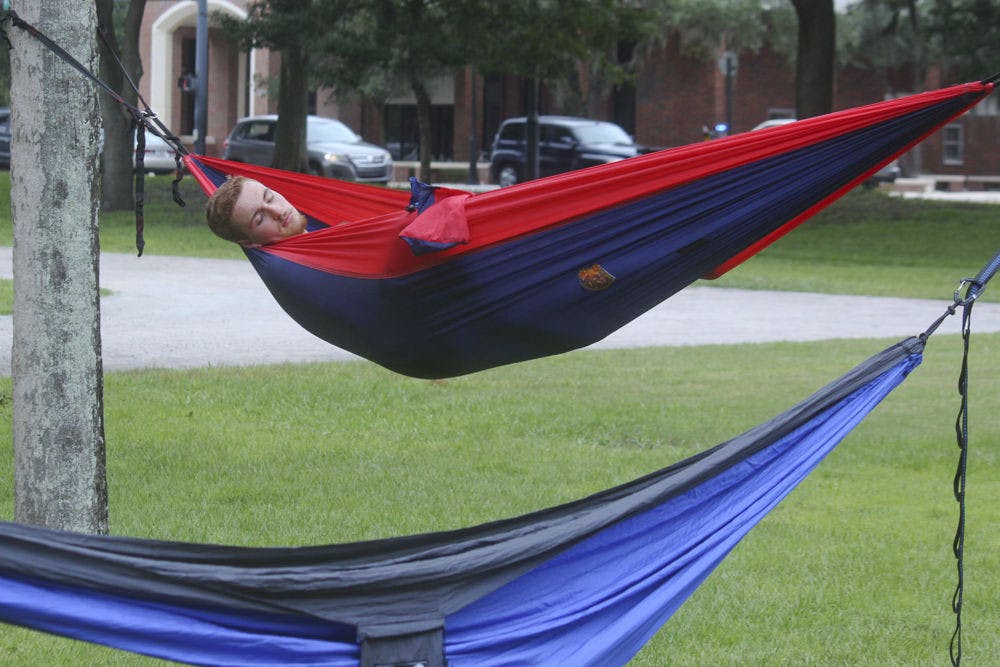Last week, I did something rare. I took a nap on a weekday. It was a spontaneous choice: unplanned, but needed. A half-hour or so opened itself up in my schedule that day, and I was tired. Naturally, I leaped on the opportunity. I don’t nap often for various reasons — either I have no time for it or I get too excited about being able to rest and, thus, restlessly lie awake for an hour.
I also find naps to be strange. They seem to belong solely to the weekend when they should have a larger place in our daily lives. But who can afford an hour of sleep during the daytime? There are deadlines to meet. Work is for the day, and sleep is for the night. When in those rarest of circumstances that we decide to put all of our daily demands aside and sleep for a bit, is it not simply to recharge so we can be more productive in the long run?
I suppose what’s strange about naps, then, is how they are viewed. They are a chance to rest so we can throw ourselves more vigorously back into things. We tend to view ourselves as machines whose energy is like oil in a car; there is only so much energy we can expend before we need to be replenished. And the replenishment, when it comes, is nothing but a means to an end: higher productivity. Rest is supposed to fuel our work.
What if the relationship was inverted? What if work was for the sake of our rest, and rest was not for the sake of better, more vigorous work? What if napping was a way of life?
I am not advocating for laziness, or even to disconnect from the quick and busy world. Even to me, it is strange to imagine a world where everyone shamelessly naps. Such a world would certainly not value efficiency or activity as much as we do. Such a world would not see Elon Musk in the same way we do, as a triumph of the modern work ethic. He works, according to the New York Times, 120-hour weeks while sometimes not leaving the office for a few days.
Busyness is prized for its own sake today. It is assumed that the person who hardly has time to cook is living a better life than the one who takes frequent long walks, daily naps or reads thick novels. Something seems off about the latter person, and that is because the meaningful life to us is an exhausting and stressful one. Being tired is oftentimes a badge of honor, and complaining to our friends about our impossibly frantic lives is a way of flexing our muscles, of putting ourselves on display. It is no surprise that our conception of work has thousands of casualties: doctors, lawyers and young professionals who simply cannot do it anymore and feel burnt out.
The solution to this is not laziness or disconnect, as I mentioned earlier, but a reorientation that begins with this question: How much is work worth? Is a 60-hour work week, a robust resume or an involved student what makes a life meaningful? If I work less, am I worthless?
Work today is both what we consider to be the most important thing about us; however, it's one of most taxing parts of our life. Our sense of self is bound up with what we do and it can be hard to untangle ourselves from that notion.
To me, napping is the first step in a much larger journey toward becoming mindful of rest. Will I start napping every day now? No. I will, though, try to stop equating my work ethic to my worth. We want our work to be what defines us as people, the foundation of our very being, but that isn’t what defines us as people. Our lives are what we make it.
Scott Stinson is a UF English senior. His column appears on Wednesdays.
SLEEPING BEAUTY -- Charlie Le Grand, an 18-year-old UF biology major, naps at one of the hammocks during the third annual Trunks and Trashcans event on Saturday. Hosted by the UF Hammock club, the event was filled with hammocks, slacklines and Frisbees.





![Photo of the missing Leachianus “Leachie” gecko. [Photo courtesy of Mike Southwick]](https://snworksceo.imgix.net/ufa/907bd92a-0b29-40eb-a5fb-d7db7cf98b2f.sized-1000x1000.jpg?w=1500&ar=16%3A9&fit=crop&crop=faces&facepad=3&auto=format)
